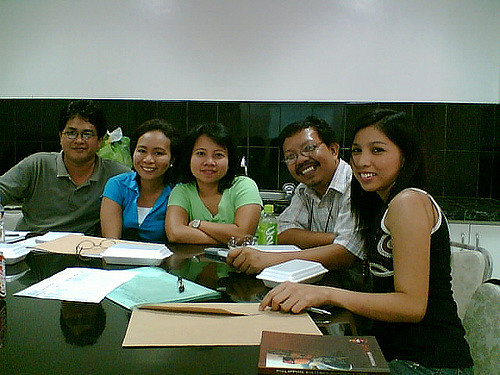There’s this scene in the flick, Social Network. Two score, seven more bodies circled ‘round five computers and a bottle of whiskey. The dry erase board squishes uncomfortably against the wall. Music blares. Students cheer. In the epicenter, five students write code to break into a security system. That’s fifty fingers — count ‘em! — flying through keyboard strokes; ten individual eyeballs absorbing data at a pace that makes Hoffman’s Rainman look like Special Ed; five shots of amber elixir slammed down throats every seven seconds the bell goes BRING BRING BRINGING. These mad geniuses pound away, hacking to see who hacks it amongst Mark Zuckerberg’s band of merry.
At a distance, Zuckerberg and business partner, Eduardo Salverin, observe the spectacle. Neither knows it, but it’s the beginning of the end. Zuckerberg’s assembling the West Coast Crew, his A-Team; he’s surrounding himself with very own Justice League or Teen Titans or Planeteers and he’s not even trying to save the world or take pollution down to zero. He just wants to be your Friend.
So he gathers his squad of geeks and programmers, all who’ll pursue this passion with what some might call fervor, others call obsession. And Salverin, he’s already opted out of this leg of the gravy train. He believes in the product as much as anyone else, but his dedication is back at stage 1-02 while the Z-Boys polish their plungers and comb their mustaches, readying to storm King Koopa’s castle
Zuckerberg knew it. That Salverin didn’t have the “stand-to-lose-everything, win-at-all-costs” drive. The only thing Salverin offered the partnership was “balance” – sound advice, hedged bets and proportionate responses – everything Zuckerberg didn’t want or need. Zuckerberg wanted focus. He wanted to surround himself with like-minded individuals, all with sights on the same goal, all sharing the attitude to get it done.
Not easy. Not easy to have this foresight. Not with the rhetoric of balance bouncing around like a Plinko chip, preached by everyone and their baby’s momma. Balanced diet, balanced portfolio, work-life balance… advice that probably works for 98 percent of the population. But for the two percent who want to change an established order, determined to win against the house when the deck is stacked clear to the cumulus nimbus, dividing eggs is a waste of protein.
Benjamin Graham said it best: “Don’t diversify. Don’t put your eggs in different baskets. Put all your eggs in one basket.
Then watch that basket like a hawk.”
When odds be long and time short, balance beams and juggling acts don’t impress no one. Balance leads to great stories of how someone once took their shot and missed. Focus, immersing yourself in passion and passionate people, leads to others telling your story for you.
Photo Credit: bitstop2003









